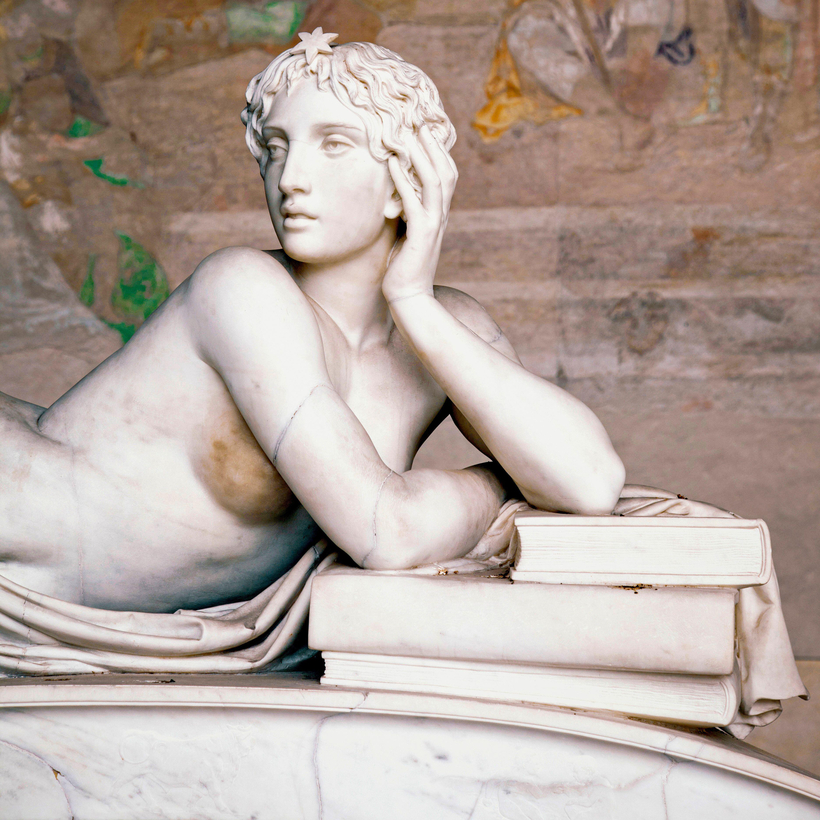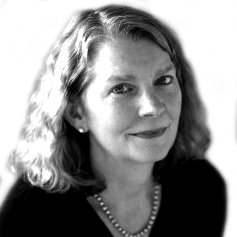translated by Ann Goldstein
“Writing,” Elena Ferrante tells us in her engaging, slyly disruptive new collection of essays, expertly translated by Ann Goldstein, “is entering an immense cemetery where every tomb is waiting to be profaned.” The tombs, Ferrante suggests, are filled with our literary patriarchs, the great men who have dominated literature since writing began. The profaners are the marginalized, and Ferrante calls upon us as readers and writers to join her in aiming our spray cans at their graves.
The first three essays were commissioned for the University of Bologna’s Umberto Eco lecture series, and I’m sure it was not lost on Ferrante that she was only the second woman in a long line of men to receive this illustrious invitation. All the more reason it is such a pleasure to read in these pages an intimate account of Ferrante’s development as a woman who writes.
In the opening essay, “Pain and Pen,” Ferrante establishes a theme that will run throughout the book regarding two kinds of writing she has identified in her own practice: “The first compliant, the second impetuous.” As the compliant writer, who sticks to composing within the margins, she is able to generate material with relative ease by relying on traditional rules and structures. As the impetuous writer, she strays, counting on “the convulsive, disintegrating type of writing, which produces oxymorons, ugly-beautiful, beautiful-ugly, and spreads inconsistencies and contradictions” to jolt her into exploring beyond the margins. “For me true writing is that: not an elegant, studied gesture but a convulsive act.”

These two strands are informed by Ferrante’s tragic, though sadly common, experience as an early reader: “I read a lot, but what I liked was almost never written by women. It seemed to me that the voice of men came from the pages and that voice preoccupied me, I tried in every way to imitate it … but I was a girl and so would never be able to write books like those of the great writers.”
She is saved from giving in to this grim determination at the end of high school, when she comes across a sonnet by the 16th-century Italian poet Gaspara Stampa. The poem begins:
If, a lowly, abject woman, I
can carry within so sublime a flame,
why shouldn’t I draw out at least
a little of its style and vein to show the world?
And so begins Ferrante’s search for her own “style and vein.”
In the second essay, “Aquamarine,” Ferrante examines the voice of her early novels—Troubling Love, The Days of Abandonment, and The Lost Daughter. “I am, I would say, their autobiography as they are mine.” She came to feel somewhat trapped in this type of first-person narration and turned to Gertrude Stein’s The Autobiography of Alice B. Toklas, among other works, to guide her toward an imaginative use of “the other,” leading her to develop a new fictional voice embodied by Lila and Lenù in the Neapolitan quartet.
The stunning essay “Histories, I” further explores the limitations and opportunities inherent in being a woman writer through an enlightening discussion of the writers who have influenced and inspired her, including Emily Dickinson, Ingeborg Bachmann, María Guerra, Samuel Beckett, Italo Svevo, Virginia Woolf, and Fyodor Dostoyevsky.
“Dante’s Rib,” the final essay, is a scintillating reflection on Ferrante’s intellectual journey as she searches for a deeper understanding of the figure of Beatrice and the role of women in her beloved Dante’s opus. Over many years and readings, Ferrante is eventually able to delineate for herself, and for us, how Beatrice transforms from a silent receptacle of Dante’s adoration into someone whose expression of scientific, theological, and mystical knowledge reflects the likes of Mechthild of Magdeburg, Hildegard of Bingen, and Julian of Norwich.
In Dante, Ferrante locates “the most intense desire of the writer and storyteller: the yearning to untie yourself from yourself; the dream of becoming the other without impediment; being yourself while you are me; a flow of language and writing without feeling otherness as a barrier.”
As writers and readers, Ferrante suggests, we will always be at once united with and separate from the people, language, literature, and culture we inhabit, inherit, and create.
Or, to put it another way, those tombs “waiting to be profaned” are our own.

Jenny McPhee is a writer and translator and the director of the Center for Applied Liberal Arts at N.Y.U.’s School of Professional Studies


